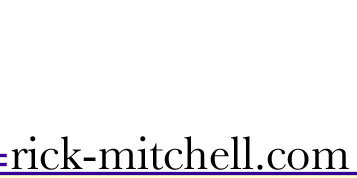YouTube Prevails Against French TV Group
Seeking $180 Million for Video Uploads
By Rick Mitchell
PARIS--YouTube is a site host provider and as such benefits from a limited liability exclusion under French
and EU electronic commerce law, the Paris First Instance Court ruled May 29 (TF1 v. YouTube LLC, Paris Gr.
Inst., No. 10/11205, 5/29/12).
The case is the latest installment in the French and EU courts' long-running debate over internet
companies' liability for illicit content uploaded to their sites, practitioners told BNA June 5.
In the case dating to late 2007, French television group TF1 and subsidiaries sought nearly 150 million
euros ($186 million) in damages and interest from YouTube for copyright infringement on thousands of
uploaded videos. TF1 argued that the American company actively controls content on YouTube and earns
illicit advertising income from “counterfeit” videos.
Practitioners said the First Instance Court's ruling in YouTube's favor hewed closely to previous findings by
the European Court of Justice and France's top appeals court, the Cour de Cassation, on the role of passive
site host providers.
But they said the case's most unusual element was the court's sweeping rejection of almost all TF1's
copyright claims, on grounds the company failed to prove them. The court ordered the French company to
pay YouTube 80,000 euros ($99,436) in court costs.
In a May 29 online statement, Christophe Muller, head of YouTube partnerships for southern Europe, the
Middle East, and Africa, called the decision “a victory for everyone who uses the Web.” TF1 did not
immediately respond to calls and emails seeking comment, but practitioners said the company is very likely
to appeal.
YouTube Played No Active Role
TF1 argued that YouTube is liable because it plays an active role in organizing, controlling, and otherwise
making editorial decisions to promote content posted on its sites.
The television group said that YouTube cannot benefit from the limited liability exclusion for website host
providers under the E-Commerce Directive (2000/31/EC) and France's 2004 Law to Establish Confidence in
the Digital Economy (LCEN), which transposed the directive into French law.
Laurent Szuskin, a Paris-based partner at Baker & McKenzie, said the court strictly applied criteria set out in
a 2011 ECJ decision, L'Oreal SA v. eBay International AG, EWHC, No. C-324/09, 7/12/11 (16 ECLR 1199,
7/20/11), “to find there's no active role, and nothing obviously illicit that YouTube should have known
about the content.”
The court noted that the YouTube website employs a statistical algorithm that automatically ranks videos in
categories such as “most viewed,” “most recent,” and “most commented on.”
“[It] said these are just statistical calculations by a search engine and [concluded] that YouTube does not
make a conscious choice, or play an active role, on editorial content,” Szuskin said.
By contrast, the Cassation Court's recent eBay decision, eBay Inc. v. LVMH, Cour. Cass., No. 11-10508,
5/3/12 (17 ECLR 874, 5/16/12), found that the online auctioneer does a lot more than just host content,
according to Marc Schuler, a Paris-based partner at Bird & Bird. The Cassation Court found “eBay clearly had
an active role as an intermediary in sales on the platform, including by offering tools to promote sales.
YouTube's role is completely different,” Schuler said.
Advertising Income Not Controlling
The court also rejected TF1's argument that YouTube illicitly profited from counterfeits of TF1's copyrighted
content by earning advertising income from the site. Szuskin said the ruling followed the ECJ's L'Oreal
decision, which established that nothing in EU law prevents streaming websites from having a financial
business model based on advertising income.
Schuler said the TF1 ruling also echoes other Cassation Court 2011 decisions, Nord-Ouest Production v.
Dailymotion.com, and Olivier M v. Bloobox.net, Cour. Cass., docket nos. unavailable, 2/17/11 (16 ECLR
362, 3/9/11), which found that aggregator internet sites are technical service providers, not content
publishers, even when they sell advertising space and perform formatting services.
The First Instance Court found that YouTube's advertising was not directly linked to the content in dispute.
“TF1 did not succeed in proving that advertising on the YouTube platform establishes capacity of action or
an active role on content in dispute that would make the operator liable for that content,” Schuler said.
By contrast, the Cassation Court's recent eBay decision found that the company has a clearly active role in
assisting vendors on its site, and that eBay advertising is linked to disputed content, he said.
No Compensation for ‘Unreasonable' Take-Down Time
Szuskin said that a large part of the court's ruling delivered “almost a law lesson” to TF1 on what the court
deemed the television group's failure to adequately back up claims that YouTube violated copyrights on
programs and broadcasts.
TF1 attempted to claim damages for the upload of thousands of programs and broadcasts, such as football
games, news programs, films, and other videos onto YouTube's site.
The court accepted only seven of these, because it said that TF1 failed to clearly identify the videos in
question or to clearly establish its rights over them. For the seven, YouTube took “at best five days” to take
them down, which the court said was unreasonable, considering a site host's obligations under the LCEN
and the EU directive to promptly take down illicit content once notified.
Nevertheless, because YouTube is a free site, the slow take-down doesn't meet the conditions for
compensation under article L 216-1 of France's intellectual property code, the court said.
(Appeared: June 13, 2012)

